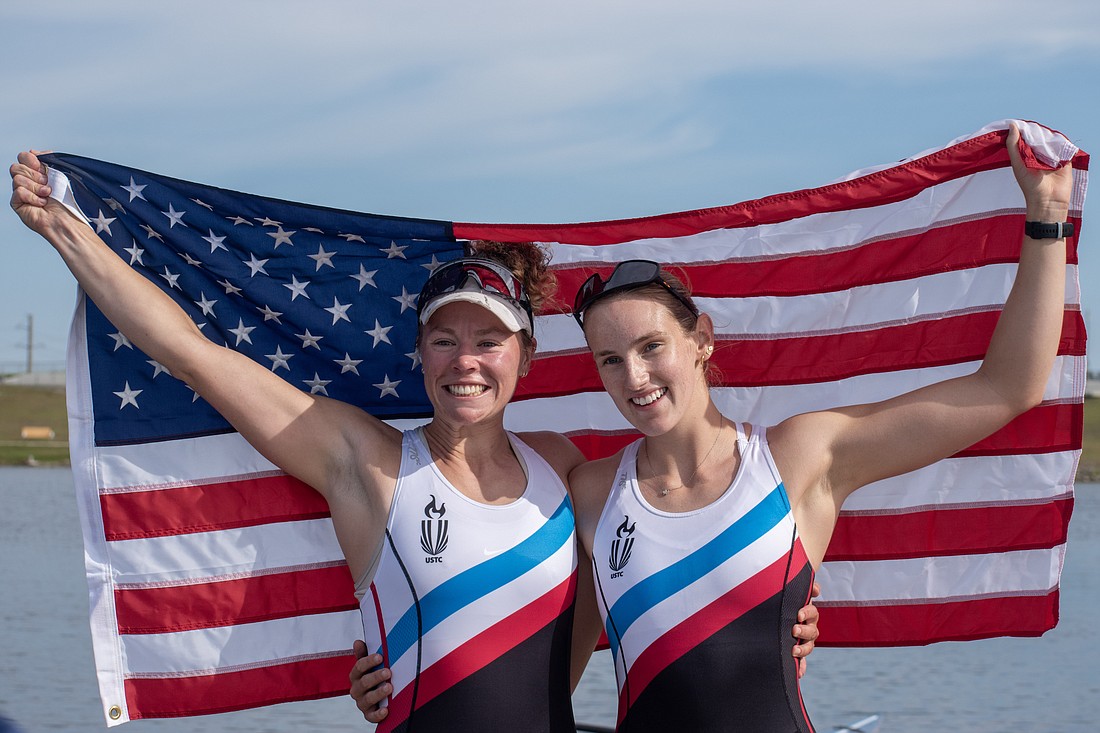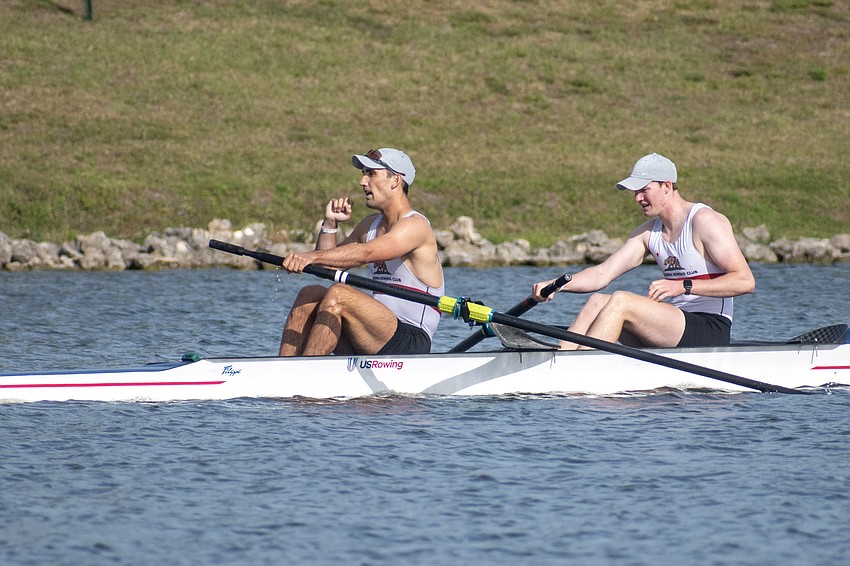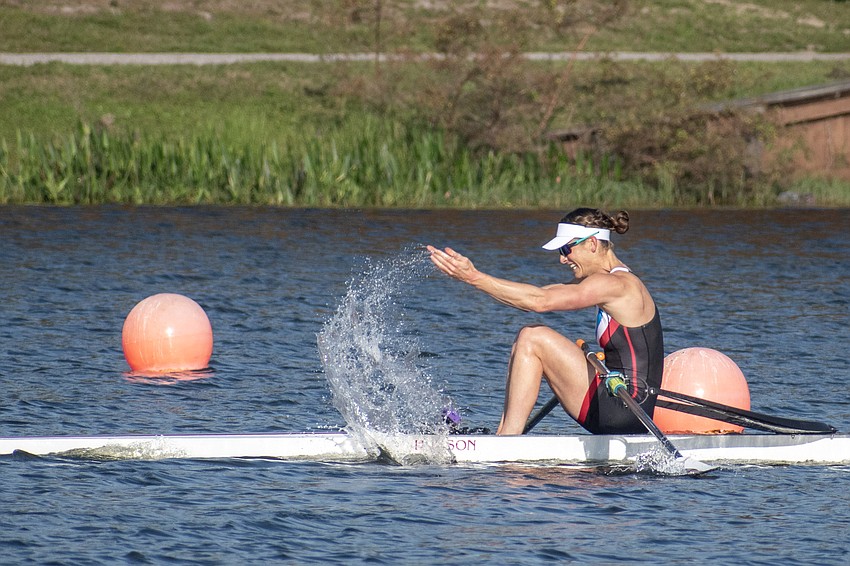- April 14, 2025
-
-
Loading

Loading

As she wrapped the American flag around herself and teammate Azja Czajkowski after qualifying for the 2024 Paris Olympics on April 7 at Nathan Benderson Park in Sarasota, U.S. rower Jessica Thoennes released a stream of tears.
The power of her emotions might not have been expected considering Thoennes has done it all before, qualifying for the 2020 Tokyo Olympics in the women's eight.
That 2020 boat went on to finish fourth in Tokyo (6:02.78), missing the podium by 1.57 seconds. Just being there was a lifelong dream for Thoennes, but that doesn't mean that qualifying for Paris in the women's pair boat isn't just as overwhelming.
Thoennes celebrated on the dock after she combined with Czajkowski to earn the bid with a 7:37.62 victory.
"I love rowing," Thoennes said. "I was a walk-on (at the University of Washington). I came late to the game. I'm still so in love with the sport and I'm having fun. I'm going to keep going and doing my best and working hard. Days like today, that is why."
Thoennes and Czajkowski were two of five U.S. rowers to punch their tickets to Paris at the U.S. Olympic & Paralympic Team Trials, which ran April 4-7 at Nathan Benderson Park. Oliver Bub and Billy Bender earned a U.S. Olympic berth in the men's pair, winning the event in 6:54.64, while Kara Kohler won the women's single sculls in 8:04.01.
Those five earned spots in Paris because the U.S. pre-qualified boats to the Olympics in their events at previous regattas. The rest of the winners at the Trials will have a final opportunity to earn a sport in the Games at a second-chance qualifier in Lucerne, Switzerland, in May.
Race well there, and those rowers will have a chance to feel the elation Bub and Bender felt after they won the men's pair.

It will be both rowers' first time at the Olympics. Both also have ties to Dartmouth College as Bender is a senior there, while Bub graduated in 2020. Bub has spent the last four years preparing for the run toward the Paris Games. He said his parents both rowed at Boston University and were friends with several Olympic athletes. As a result, Bub said, he hung out with them, too, and in the process learned what this level of the sport required.
"It takes a lot of guts to revolve your life around a six-minute race," Bub said.
If they had fail at the trails, and all the work Bub had done in the last four years to reach the Olympics would have been in vain. Bub did not fail. He and Bender won the event by 2.73 seconds, definitively outpacing the rest of the field. For Bender, devoting himself to training this spring and going to Paris this summer will mean he has to return to Dartmouth for another semester instead of graduating like many of his friends. The campus will feel empty without them, Bender said. Not many experiences would make up for a delay in graduation — but the Olympics are one of them.
"This is pretty cool," Bender said with a laugh. "I think it's worth doing."
Kohler will be going to her third Olympic games. She was part of the bronze medal-winning women's quad sculls at the 2012 Games, then qualified in a single sculls for the 2020 Tokyo Games and finished ninth. Kohler was just as enthused by her qualification this time. As she crossed the finish line, she slapped the lake's water with her left hand and let out a yell of excitement.

Kohler is hoping her third Olympics will be the charm that returns her to the medal stand, though she knows from previous experience that the single sculls competition will be fierce.
"(Once you're there), it doesn't matter who anybody is," Kohler said. "You just have to go and give it your best shot and not be intimidated or distracted. There are a lot of distractions at the Olympics. It's a big show. But I want to go there and perform."
Kohler gave kudos to Benderson Park for how it handled the team's training needs over the winter. Kohler said the park's new tent, where boats can be stored and athletes can conduct indoor training, was especially welcome and enhanced the experience.
Making the physical prep as streamlined as possible is a boon to rowers, as the mental side of the sport is difficult enough to navigate. Thoennes and Czajkowski were both cut from the U.S. Olympic Selection Camp in March, meaning they were not selected for the women's eight or women's four. Instead of packing up and going home, the two rowers decided to team together for a shot at the women's pair.
They had a week and a half to develop a rowing cadence that works and generally creates chemistry. The mad scramble worked as the pair won the women's pair finals by 7.64 seconds.
"It was tough to go from Selection Camp to this smaller boat," Czajkowski said. "We just kept our mindset positive. We had so much trust in each other and in what we can do together. It feels good to take a step forward."
The next step? The Paris Olympics.